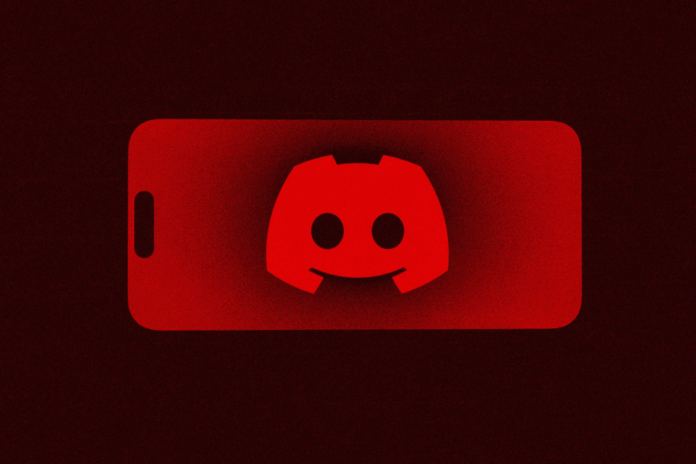
In a bold legal move, the state of New Jersey has filed a lawsuit against the popular chat platform, Discord, accusing the company of failing to adequately protect children and teenagers from sexual predators and harmful content. The lawsuit, which was filed on Thursday, claims that Discord’s safety features designed to shield its youngest users are not only insufficient but also deceptive. New Jersey’s attorney general, Matthew Platkin, has stated that the state’s investigation has uncovered evidence that the platform, despite its policies, is putting youth at risk.
The lawsuit marks a significant step in the ongoing scrutiny of social media platforms, which are increasingly facing legal action from state governments concerned about online safety, particularly for minors. For New Jersey, this is the first state to take such a stance, signaling a potentially broader wave of legal challenges to the tech giant’s child protection practices.
The Catalyst for the Lawsuit
Platkin’s decision to pursue legal action against Discord stems from two primary catalysts. The first is personal. Platkin recounts a conversation with a family friend who was shocked to discover that his 10-year-old son had managed to sign up for Discord, despite the platform’s explicit rules prohibiting children under the age of 13 from registering. This raised alarm bells for Platkin, who began questioning the effectiveness of Discord’s age verification measures.
The second catalyst was far more alarming: the tragic mass shooting in Buffalo, New York, in 2022. The gunman behind the attack used Discord to post his intentions and stream the horrific act live to other users. Although the footage was quickly removed, the incident highlighted the potential dangers of the platform’s use in real-world violence. Platkin pointed to this as further evidence that Discord’s security and oversight were failing, particularly when it comes to preventing young users from accessing harmful content.
“This case reflects a broader problem we are seeing across social media platforms,” Platkin said. “These companies have consistently, knowingly, put profit ahead of the interest and well-being of our children.”
The Claims Against Discord
The lawsuit, filed under New Jersey’s Consumer Fraud Act, accuses Discord of failing to adhere to its own safety policies regarding minors. At the heart of the complaint is the platform’s inability to prevent children under 13 from joining, despite its public promises and age restrictions. New Jersey argues that Discord’s failure to implement proper safeguards leads to minors being exposed to inappropriate content, including direct sexual messages and violent material.
Discord’s safety policies, as outlined in its 2023 guidelines, are extensive and designed to protect users, particularly teenagers. The platform restricts access for children under 13 and forbids any form of sexual interaction with minors. It has also introduced algorithmic filters to block unsolicited sexual messages from adult users. The company’s stated mission is to provide a “fun and safe space for teens,” with various levels of protection to ensure their safety. These include features like scanning all incoming messages into a user’s inbox for inappropriate content, limiting message scans to just friends, and even allowing users to opt-out of message scanning entirely.
However, despite these promises, New Jersey’s attorney general argues that the platform’s safety measures are either ineffective or poorly enforced. Platkin has pointed to the platform’s inability to fully block underage users, and the inconsistency in its safety tools, which have proven to be insufficient in keeping children safe from sexual predators and disturbing content.
A Growing Trend of State-Led Lawsuits
This lawsuit is not the first of its kind, but it is particularly significant due to its focus on child safety in online environments. Across the U.S., state governments have increasingly taken legal action against major social media platforms for failing to protect minors. Many of these cases have focused on the negative impacts of social media on mental health, cyberbullying, and exploitation. However, despite the growing number of lawsuits, little substantial change has been seen so far in terms of tangible reforms within the platforms.
For platforms like Discord, the New Jersey lawsuit presents an even greater challenge, as it taps into the much-debated issue of online child safety. Discord’s reputation as a haven for gaming communities and its appeal to teenagers make it especially vulnerable to legal action. The platform has attracted millions of users, many of whom are minors, which brings additional scrutiny regarding how effectively it can safeguard young people from exploitation and abuse.
Discord’s Response and the Road Ahead
Discord has consistently defended its safety protocols, claiming that its features are designed with young users in mind. The company’s policies state that it “works relentlessly” to create a fun and safe space for teens, highlighting its commitment to protecting minors. It also points out that it has various mechanisms to ensure compliance with child protection laws, such as scanning messages and providing users with privacy controls.
Despite this, New Jersey’s lawsuit argues that these measures fall short in practice. Platkin and other critics argue that the platform’s policies are not sufficient in preventing exploitation or ensuring that underage users are kept off the platform entirely. The state’s legal action could set a precedent for further regulatory scrutiny and lawsuits against social media platforms if the courts side with New Jersey.
Looking forward, the outcome of this case could have widespread implications for how social media platforms handle child safety. It may also influence the ongoing debate over how much responsibility companies should bear when it comes to protecting vulnerable users online. Given the increasing concerns about online safety, particularly with the rise of gaming and social media apps that attract younger users, this case is likely to be just one of many as states and lawmakers continue to hold tech companies accountable for their role in safeguarding children.
Conclusion
The lawsuit filed by New Jersey against Discord brings to light critical questions about the safety of social media platforms for minors. As the tech industry continues to evolve, so too must the regulations that govern it, especially when it comes to protecting the most vulnerable users. The outcome of this legal battle could have far-reaching consequences for the future of online platforms and their responsibility to protect children from harm. Whether this case will lead to more stringent regulations or spark a broader movement for online safety remains to be seen, but it is clear that the conversation about social media, child protection, and corporate accountability is only just beginning.


